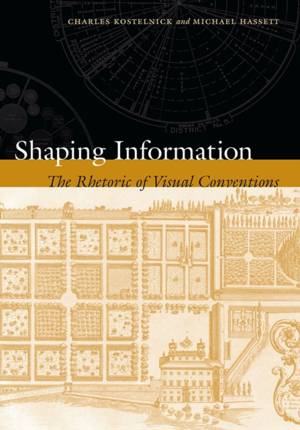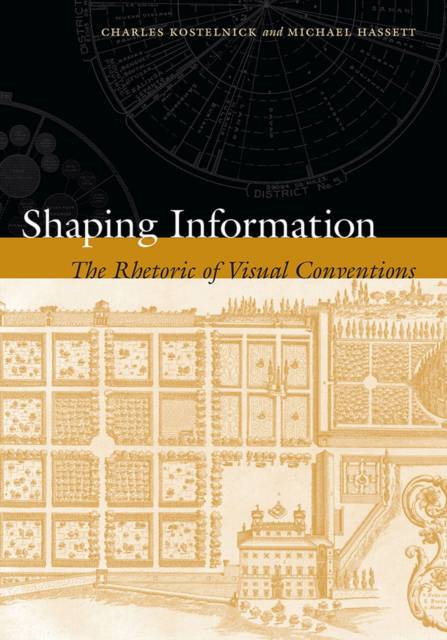
- Retrait gratuit dans votre magasin Club
- 7.000.000 titres dans notre catalogue
- Payer en toute sécurité
- Toujours un magasin près de chez vous
- Retrait gratuit dans votre magasin Club
- 7.000.0000 titres dans notre catalogue
- Payer en toute sécurité
- Toujours un magasin près de chez vous
Shaping Information
The Rhetoric of Visual Conventions
Charles Kostelnick, Michael HassettDescription
From charts, texts, and graphs to illustrations, icons, and screens, we live in an information age saturated with visual language. Yet the underlying principles that provide structure for visual language have long eluded scholars of rhetoric, design, and engineering. To function as a language that reliably conveys meaning, visual language must embody codes that normalize its practices among both the designers who employ it and the readers who interpret it.
In this wide-ranging analysis, Charles Kostelnick and Michael Hassett demonstrate how visual language in professional communication--text design, data displays, illustrations--is shaped by conventional practices that are invented, codified, and modified by users in visual discourse communities. Drawing on rhetorical theory, design studies, and a broad array of historical and contemporary examples, Shaping Information: The Rhetoric of Visual Conventions explores the processes by which conventions evolve and proliferate and shows how conventions serve as the medium that designers use to shape, stabilize, and streamline visual information.
Kostelnick and Hassett extend contemporary theories that define rhetoric as a social act, arguing that visual conventions also thrive within discourse communities and are fragile forms that vary widely in their longevity and scope. Shaping Information: The Rhetoric of Visual Conventions is a thorough guide for scholars, teachers and practitioners of rhetoric and business and technical communication and for professionals in engineering, science, design, and business.
Spécifications
Parties prenantes
- Auteur(s) :
- Editeur:
Contenu
- Nombre de pages :
- 280
- Langue:
- Anglais
Caractéristiques
- EAN:
- 9780809338788
- Date de parution :
- 06-06-22
- Format:
- Livre broché
- Format numérique:
- Trade paperback (VS)
- Dimensions :
- 176 mm x 252 mm
- Poids :
- 476 g

Les avis
Nous publions uniquement les avis qui respectent les conditions requises. Consultez nos conditions pour les avis.






